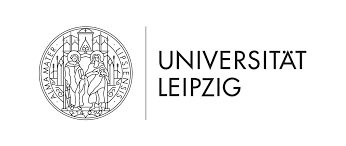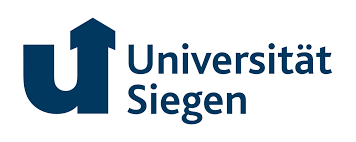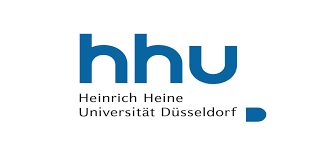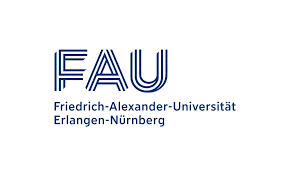You’re using the old Program Database. The new StudyBuddy Database is live with updated courses and a wishlist to save your programs.
Step 1 - Find your Study Program

University of Leipzig
Leipzig
Global Studies
Subjects: Political Science;Social Sciences
M.A. | Master of Arts
Course description
In this degree programme, you delve deeply into globalisation and its effects on countries in both the Global North and the Global South. You approach these topics from an interdisciplinary angle, blending insights from global history, political science, and cultural studies. A standout feature of this programme is the diverse international makeup of the student cohorts and the built-in opportunity to study abroad. You will explore subjects like global history, political science, and cultural studies, gaining a comprehensive understanding of globalisation. The programme's international cohort enriches your learning experience, offering varied perspectives. Additionally, the integrated study abroad component provides firsthand exposure to different cultures and global processes. This programme equips you with a nuanced view of globalisation, combining academic rigor with practical experience. The interdisciplinary approach ensures you develop a well-rounded perspective, preparing you for a range of global challenges. The international composition of the cohorts fosters a rich learning environment, while the study abroad experience enhances your global awareness and adaptability.
Program Information
| Study Location | Leipzig |
| Start Semester | Winter |
| Study Form | Part-time |
| Study Type | Postgraduate |
| Teaching Language | English |
| Dual | No |
| Remote | No |
| Application Fee non-EU | No information |
| Study Length | 4 Semesters |
| Tuition Fees per Semester | No Tuition Fee |
| Cost per Semester | 270 EUR |
Step 2 - Check Application Requirements
Application Requirements
Language Requirements
| CEFR | A2 |
| IELTS | 6.5 |
| Cambridge (CAE) | C1 |
| TOEFL IBT | 80 |
Applicants whose native language is not English must provide test scores for one of the following standardized English proficiency tests: Test of English as a Foreign Language (TOEFL international): minimum score of 550 paper-based (or 213 computer-based or 80 internet-based). Please notice that the code number for the EMGS programme is /4688/. International English Language Testing System (IELTS): minimum score of 6.5 (with no section less than 6.5) Cambridge C2 Proficiency (CPE): Grades A, B, C Cambridge C1 Advanced (CAE): Grades A, B Applicants who have received a degree from a university at which English was the language of instruction are not requested to take one of the previously mentioned proficiency tests. An official certificate from the applicant’s university is required to confirm that English was the language of instruction.
Qualification Requirements
Completion of a six-semester BA programme in history or cultural studies, a six-semester BA programme in social sciences or economics, or a degree recognised as equivalent by law or by the competent state authority where a minimum of 15% of the courses were directly relevant to the global studies field; Knowledge of English at B2 level of the Common European Framework of Reference for Languages or UNIcert®-Stufe II of the AKS, to be proven by one of the internationally recognised tests; this proof is not necessary for English native speakers and students who obtained their previous degree from an English-speaking higher education institution;
Document Requirements
A curriculum vitae in English (1-3 pages) (You may consider using the Europass CV as a template.) 2. Motivation letter in English This letter should explain why you are interested in this particular master’s programme (1–2 pages). In case you have a preference for your mobility track, please specify this in the motivation letter and why you would like to study at the respective universities. 3. Proof of nationality (e.g. copy of passport) 4. Proof of residence According to the rules set by the European Union, this proof can be either provided in the form of a residence certificate issued by the candidate’s municipality OR a certificate from the candidate’s place of work, study, or training issued by the respective institution. The document must have been issued within 12 months before the submission deadline of applying for the scholarship. 5. High school diploma (secondary school leaving certificate, e.g. Baccalaureate, A Levels) or equivalent (AND certified translation into English, if the document is not issued in English or German) 6. Official high school transcripts (AND certified translation into English, if the document is not issued in English or German) 7. University diplomas ( evidence of all completed degrees (e.g. Bachelor’s, Master’s, Diplom) (AND certified translation into English, if the document is not issued in English or German) If you graduate after the application deadline, admission will be considered based on your university transcripts. 8. Complete official transcripts of records from your university (AND certified translation into English, if the document is not issued in English or German) 9. English test results
Application Process
| Acceptance Interview | No |
| Acceptance local admission restrictions | Restricted |
| Application | directly at the University |
Step 3 - Get studying insights
Your Free StudyBuddy Checklist
Making your move to Germany easy
-
Simplified step-by-step Checklist
-
Track progress and complete tasks on the go
-
Direct access to webinars and resources
-1.png?width=1179&height=1764&name=image%20(6)-1.png)

Free Live Webinar
How to Study in Germany for Free
Get ready to study in Germany!
February 26th, 2026
-
Learn how to find your ideal program
-
Step-by-step application guide
-
Tips and tricks to get admission
Step 4 – Apply for a Visa

German Visa Guide
Your tailored German visa application guide
Be Prepared for Your Visa Appointment
Value Package
-
GERMAN BLOCKED ACCOUNT
-
Accepted by all German authorities
-
Instant blocked amount confirmation once funds are received
-
TRAVEL HEALTH INSURANCE / INCOMING INSURANCE
-
Free coverage worth up to €953. Mandatory for your visa
-
GERMAN HEALTH INSURANCE
-
Award-winning, affordable cover for visa, university, and life in Germany4
-
Up to €90 cashback with your personalized insurance2
-
FREE GERMAN BANK ACCOUNT
-
Instant access to monthly payouts + automatically connected to your Blocked Account
-
Free digital bank card ready to use worldwide. Apple + Google Pay.
-
ADDITIONAL FREE BENEFITS
-
Free International Student ID Card (digital) with thousands of discounts1
-
In-app accommodation access
-
COST BREAKDOWN
-
Monthly fee: Only €5
-
Blocked Account set-up fee: €89








